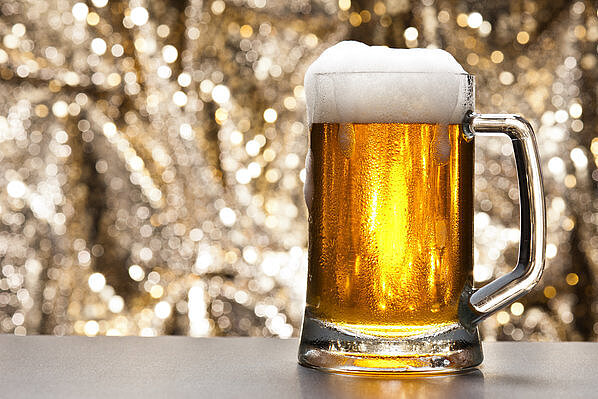Egg liqueur

What is egg liqueur?
Eggnog is an alcoholic drink made from alcohol, egg yolk and sugar. In the EU, eggnog has an alcohol content of at least 14% and usually around 20%. Egg liqueur can be bought ready-made or prepared yourself, e.g. with rum, condensed milk, vanilla sugar and powdered sugar. Eggnog tastes sweet and creamy and is often used as a dessert or in baked goods.
Why is eggnog said to calm dogs?
The well-known dog trainer Martin Rütter gave the tip in a television program to give anxious dogs a small pint of eggnog on New Year's Eve. He believes that the alcohol and sugar in the eggnog have a calming effect on dogs and help them to cope better with the fireworks. However, he emphasizes that the amount must be very small and should only be given in exceptional cases.
What are the risks of eggnog for dogs?
Many dog owners, vets and experts are not enthusiastic about the egg liqueur tip. They warn that alcohol is dangerous for dogs even in small doses. Alcohol can lead to alcohol intoxication in dogs, which can cause symptoms such as vomiting, diarrhea, tremors, breathing difficulties, convulsions or even coma and death. Alcohol also puts a strain on the dog's liver, which is already more sensitive than that of humans. The sugar in eggnog is also not healthy for dogs, as it can lead to obesity, diabetes or tooth decay.
What alternatives to eggnog are there for dogs?
If you want to help your dog get through stressful situations like New Year's Eve, there are better options than eggnog. For example, you can offer your dog a quiet place to retreat to and give him something to chew or play with. You can also play calming music or sounds to drown out the bang. There are also special tranquilizers for dogs, but you should only use these after consulting your vet. It is also important that you give your dog security and attention, but do not feel too sorry for him or affirm him if he shows fear.
We recommend our article on this:
How can I calm my dog on New Year's Eve?
Eggnog for dogs is not a suitable sedative. The alcohol and sugar in eggnog can be harmful or even fatal to dogs. There are other, more harmless and effective ways to help your dog cope with stressful situations. If you are unsure of the best way to help your dog, consult a vet or dog trainer. Your dog will thank you!
Properties 4
Are you looking for other ingredients with a specific property?
Just click on them to find more.
If you notice any signs of hypersensitivity or poisoning in your dog, you should see your vet immediately. We are not a substitute for a vet, but we try to be as accurate as possible. Every dog reacts differently and we recommend you get a second opinion or consult your vet if in doubt.
Stay healthy and take good care of your four-legged friend!😊
Similar to Egg liqueur
Whisky contains ethanol, a substance that is very harmful to dogs. Ethanol can lead to symptoms of poisoning in dogs such as vomiting, diarrhea, breathing difficulties, tremors, convulsions and...
Vodka can be toxic to dogs, especially if they drink too much of it. It can cause nausea, vomiting, dizziness and even breathing problems. It can also damage the dog's liver and kidneys and lead to...
Beer is a beverage made by fermenting starchy substances. Barley, wheat or other types of grain are usually used for this. During fermentation, yeasts convert the sugar into alcohol and carbon...
Alcohol is generally toxic to dogs and can lead to severe symptoms of poisoning. The symptoms of alcohol poisoning in dogs include vomiting, diarrhea, tremors, ataxia, respiratory distress,...



